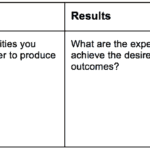Weekly Roundup: How Brexit Could Impact Emerging Markets + Other Non-Brexit News
We could not call this a Weekly Roundup without addressing Britain’s decision to leave the European Union. Sorry, but we can only find downside for the global economy and world development – a sampling of which is below. If you’ve already read enough about Brexit, we get it – just skip this particular item – there’s plenty more non-Brexit news this week.
Brexit will be terrible for Africa’s largest economies (Quartz)
EU aid stuck in Brexit limbo (DevEx)
EXPERT VIEWS- How will ‘Brexit’ affect aid agencies and charities? (Thomson Reuters Foundation)
Why a Brexit could hurt emerging markets—and beyond (CNBC)
Brexit Sparks Emerging-Market Selloff (Bloomberg)
Why Brexit is grim news for the world economy (The Economist)
Capria’s Expanding Orbit
Forbes went Inside The Bill Gates-Backed Accelerator That’s Training The Next Generation Of Venture Capitalists. That accelerator, Capria, is run by the same managers of Unitus Seed Foundation, which is investing millions in base of pyramid business. In addition to the rock band feel of the Forbes photo, what was most interesting about the story was finding out about the would-be investment managers making up the accelerator’s first cohort. Money quote:
“One of those rehearsing (his pitch) is Patrick Makanza, 51, an M.B.A. and veteran of Unilever and Barclays Bank who quit a cushy job at a top Zimbabwe private equity firm and launched Vakayi Capital. The first fund being formed by Vakayi (which means ‘to build’) will back for-profit businesses providing essential services in Zimbabwe.”
We can expect to hear more stories like Makanza’s, especially since Capria on Thursday announced the creation of the Emerging Managers Fund, a $100 million fund that will invest in equity and debt funds targeting early-stage impact businesses across Africa, Latin America and Asia. This fund will invest in at least 15 impact investment funds over the next five years, the company says.
Open economy = fewer generics?
India is making it easier for foreign investors to buy its generic drug-makers, and some fear that could ultimately decrease the amount of affordable medicine available in developing countries. Indian pharmaceutical companies currently produce an outsized amount of the world’s generic drugs, according to STAT, including treatments for life-threatening illnesses in emerging economies.
This, obviously, impacts sales by pharmaceutical companies in other countries. Will these drug-makers start buying up Indian firms and decrease the amount of affordable medicine available worldwide? Stay tuned.
Waste Not
Waste Ventures India, a trash-collecting and recycling social enterprise that employs garbage pickers in several Indian cities, will partner with Coca-Cola. Waste Ventures announced it will serve as Coke’s primary collection partner to gather post-consumer plastic bottles and channel them certified recyclers. That plastic will be processed and made available to Nike and Adidas to create “sustainable athletic apparel,” WVI says. Financial terms were not disclosed, but Coca-Cola will also contribute financial and in-kind support, the company notes. Find out more about Waste Ventures here and here.
“Not knowing if you can get sushi delivered at 10pm to your exact location is not a problem.”
Amazing: "impact" is all over this year's #GES2016, but it's not an #impinv/#socent event. https://t.co/jWMrqAStay pic.twitter.com/iDcZv1v6yb
— ImpactAlpha (@ImpactAlpha) June 23, 2016
Ebola lingers
“I don’t believe it’s in my meat,” a Liberian shopper named Rebbeca Klhea told Lois Parshley of The Atlantic, standing in a market in Monrovia at a table of quartered and smoked monkeys. “I’ve been doing this 20 years. I haven’t got Ebola.” The fact that many in Liberia still don’t know or believe that bushmeat played a role in launching the 2014 Ebola epidemic – which eventually spread to more than 28,000 people, nearly 11,000 of them Liberian – is only one reason the virus keeps resurfacing and another outbreak is likely, according to Parshley. “Liberia remains as poorly prepared for an epidemic as it was before Ebola burst from the bush,” she writes. “The poverty that made the 2014 epidemic possible appears to have deepened.”
Taking a stand?
Barron’s reports that Credit Suisse Private Banking Asia Pacific and Singapore’s UOB Venture Management have teamed up for a new impact investing fund, expected to close at the end of the year. Its first investment will be in a company providing nutritional supplement to poor people, largely backed by the Chinese government.
“We take a stand,” said Bernard Fung, head of family office services and philanthropy advisory for the Asia private bank. “An impact investment is an impact investment only if social good is an intrinsic and necessary part of the business model.”
At face value, this doesn’t seem like much of “a stand.” Isn’t this how impact investments are supposed to work? Not necessarily. But the piece contrasts the new fund with UBS Wealth Management, which takes a more far more circuitous route toward impact.
Microfinance Enters the Blockchain Era?
There’s precious little information about it online, and most of it seems to come from a translated press release originally written in Japanese. But according to the release, from private blockchain platform Mijin, this week marked the world’s first usage of blockchain technology in the microfinance sector (though it would be more accurate to call it the first usage for purposes that go beyond simple money transfers).
Japanese blockchain startup Tech Bureau and software firm Infoteria apparently completed a successful transfer of loan and deposit account data from BC Finance, a microfinance institution in Myanmar, to the Mijin private blockchain. The transfer was just a trial to test the applicability of blockchain technology for microfinance purposes – but given the extraordinary interest around this technology and its potential in the financial sector, it could signal an intriguing new wave of experimentation in microfinance.
Mexico Goes All in on Financial Inclusion
According to a recent national survey, just 44 percent of adults in Mexico own a bank account – which makes this week’s developments particularly welcome. On Tuesday the country became the latest to launch a national financial inclusion strategy, joining over 30 others that have developed, launched or initiated the development of similar strategies, with the support of the World Bank. (The bank estimates that countries with national strategies increase annual financial inclusion up to twice as fast as others.)
What’s more, just days after the strategy was announced, Mexico pledged to boost access to digital payments among its citizens, businesses and government by joining the United Nations-based Better Than Cash Alliance. So: A pretty good week for a country that accounts for about 2.6 percent of the world’s 2 billion unbanked adults.
The Dark Side to Alternative Credit Scoring
“What if you had to choose between keeping your Facebook friends and getting a home equity line of credit? What if your student loans could not be refinanced until you cut certain relatives out of your digital life?” That’s the frightening scenario laid out in a recent American Banker article, exploring the “dark side” of the increasingly popular alternative credit scoring business.
By using big data and sophisticated algorithms to analyze potential borrowers’ behavior and social networks, these services can provide access to credit to low-income clients with poor or nonexistent traditional credit scores. But in the authors’ opinion, “Even though innovative underwriting criteria can help more people get credit, the risks and potential harms of mining social media data might just be too great.”
In Case You Missed It … This Week On NextBillion
NexThought Monday: Marking a Shift at the BOP World Convention
Opportunity International and MyBucks: The Future of Digital Microfinance?
Opportunity International and MyBucks: A Dangerous Partnership Decision?
A Quick, Simple Malaria Test, and Why It Matters
‘Ahead of the Curve’ – Three Companies Get Serious About Measuring Customers’ Financial Health
Opportunity International and MyBucks: ‘A Powerful Partnership to Improve More Lives’
Photo credit: skittledog, via Flickr.
- Categories
- Health Care, Investing, Social Enterprise



